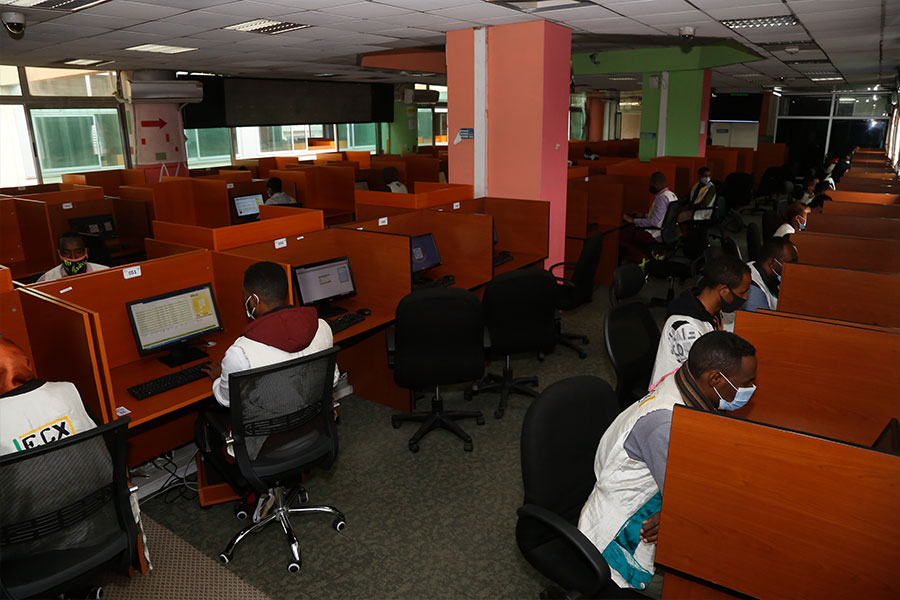
Fortune News | Nov 03,2024
Mar 4 , 2023
By Andrew Sheng , Xiao Geng
Tackling climate change and inequality would be difficult in the best of times. At a time when the war in Ukraine seems set to escalate, the Sino-American rivalry grows riskier by the day, and many economies are grappling with soaring debts and inflation, surmounting these challenges seems practically impossible. But a systemic, bottom-up approach can yield progress even under unfavourable conditions.
In an increasingly divided global economy, conventional development strategies – which depend significantly on international trade and investment – are losing effectiveness. At the same time, the budgets of both national governments and multilateral development banks are stretched thin, owing to the demands of climate action, the pandemic recovery, debt repayment, and in many cases, conflict.
But the problem is even more fundamental. Poverty, inequality, climate change, and environmental degradation are complex systemic challenges. Yet prevailing policy approaches focus on devising separate solutions to specific problems or facets of problems, with little to no regard for how their solutions – and the underlying problems – interact.
The environmental scientist Donella Meadows defines a system as “an interconnected set of elements that is coherently organized in a way that achieves something.” Our planetary system is failing because the elements of it that humans can control are organized in ways that produce bad outcomes. We can optimise their functioning and ensure human and planetary well-being by recognizing the interconnected nature of our social, ecological, and economic systems - and addressing problems holistically.
This cannot be achieved with the kinds of top-down, siloed solutions that governments overwhelmingly embrace. For example, when governments deploy specialized agencies to support rural village development, they increase transaction costs by delivering physical infrastructure piecemeal and failing to build shared databases that facilitate coordination. Weak ties to the local community can also undermine the efficacy of interventions.
Multilateral action – implemented by nation-states – tends to be even less efficient. The scale of multilateral development banks and aid agencies is too large, with individual entities and actors each operating according to its own goals and standards.
What is needed instead are bottom-up strategies underpinned by community-based and nonprofit social enterprises (entities with both social objectives and economic targets). Effective social enterprises are, to borrow management guru Peter Drucker’s description of successful nonprofits, “dedicated to ‘doing good,’” but also “realize that good intentions are no substitute for organization and leadership, for accountability, performance, and results.”
Micro, small, and medium-sized enterprises are far better equipped than their large counterparts to deploy the mission-driven management social enterprises require. MSMEs – 90oc of all businesses globally – account for 70pc-80pc of total employment. These firms, which often make little or no profit, are thus responsible for the livelihoods of billions of workers, making them invaluable repositories of knowledge about most people’s needs and interests.
These interests include ecological imperatives, which are inextricably linked to economic and social considerations. The poorest and most vulnerable tend to be most affected by environmental hazards, from pollution to natural disasters. At the same time, poverty can drive communities to over-exploit natural resources, like forests and fish stocks, in a desperate search for income.
Yet MSMEs do not have access to formal capital markets, let alone the holistic policy and institutional framework – including supporting infrastructure and a consistent legal environment – that would enable them to act as effective social enterprises. A 2015 UN Development Programme report found that these shortcomings significantly impede social-enterprise development.
Meanwhile, a small number of massive firms enjoy enormous wealth and market power – often translated into policy influence. But even as multinationals tout their environmental, social, and governance goals, ESG considerations remain subordinate to profit maximization. Less connected to local communities, these firms are not well-suited to provide the kind of bottom-up micro-solutions that, taken together, bring about systemic change.
We have the tools and resources to tackle the collective challenges we face. There is no shortage of know-how globally or funding that could be mobilized from state, corporate, and charitable sources. And we have the means to distribute these assets. Already, technology has enabled the creation of a "global knowledge commons," through which social enterprises can access the know-how – and, through trusted accreditation, the financing – they need.
But more must be done to make the most of these assets. Doing so would require leveraging existing technology, know-how, and business models to help social enterprises achieve sustainability and impact. More broadly, we must revise our sustainable-development strategies accordingly, recognizing that systemic problems demand systemic solutions.
PUBLISHED ON
Mar 04,2023 [ VOL
23 , NO
1192]

Fortune News | Nov 03,2024

Radar | Oct 07,2023

Fortune News | Mar 09,2019

Viewpoints | Jun 04,2022

Editorial | Nov 09,2019

Fortune News | Jun 25,2022

Fortune News | Feb 05,2022

Agenda | Oct 19,2019

Commentaries | Nov 30,2024

Covid-19 | Sep 04,2021

My Opinion | 131584 Views | Aug 14,2021

My Opinion | 127940 Views | Aug 21,2021

My Opinion | 125915 Views | Sep 10,2021

My Opinion | 123539 Views | Aug 07,2021

Dec 22 , 2024 . By TIZITA SHEWAFERAW
Charged with transforming colossal state-owned enterprises into modern and competitiv...

Aug 18 , 2024 . By AKSAH ITALO
Although predictable Yonas Zerihun's job in the ride-hailing service is not immune to...

Jul 28 , 2024 . By TIZITA SHEWAFERAW
Unhabitual, perhaps too many, Samuel Gebreyohannes, 38, used to occasionally enjoy a couple of beers at breakfast. However, he recently swit...

Jul 13 , 2024 . By AKSAH ITALO
Investors who rely on tractors, trucks, and field vehicles for commuting, transporting commodities, and f...

Jun 28 , 2025
Meseret Damtie, the assertive auditor general, has never been shy about naming names...

Jun 21 , 2025
A well-worn adage says, “Budget is not destiny, but it is direction.” Examining t...

Jun 14 , 2025
Yet again, the Horn of Africa is bracing for trouble. A region already frayed by wars...

Jun 7 , 2025
Few promises shine brighter in Addis Abeba than the pledge of a roof for every family...

Jun 29 , 2025
Addis Abeba's first rains have coincided with a sweeping rise in private school tuition, prompting the city's education...

Jun 29 , 2025 . By BEZAWIT HULUAGER
Central Bank Governor Mamo Mihretu claimed a bold reconfiguration of monetary policy...

Jun 29 , 2025 . By BEZAWIT HULUAGER
The federal government is betting on a sweeping overhaul of the driver licensing regi...

Jun 29 , 2025 . By NAHOM AYELE
Gadaa Bank has listed 1.2 million shares on the Ethiopian Securities Exchange (ESX),...